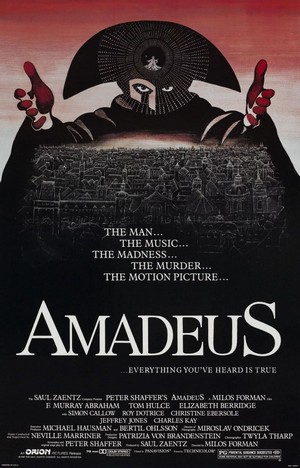
Amadeus (1984)

Raiting: ![]() 8,3 /10
8,3 /10
Genre: Biography
Director: Milos Forman
Stars: Tom Hulce, F. Murray Abraham and Elizabeth Berridge
Country: United States / France / Italy
Release date: 19 September 1984
Length: 160 minutes / 180 minutes (director's cut)







